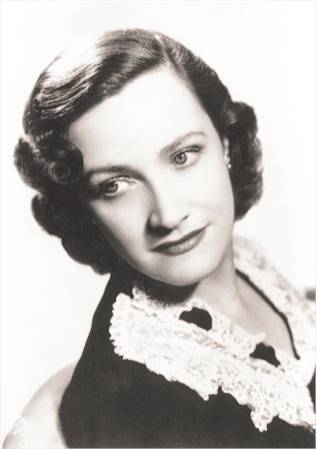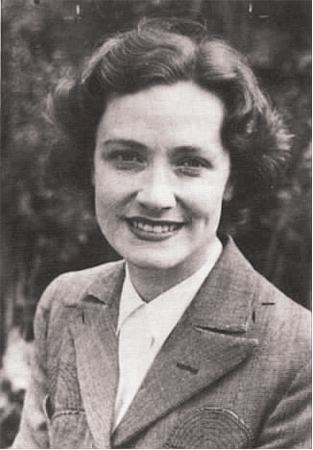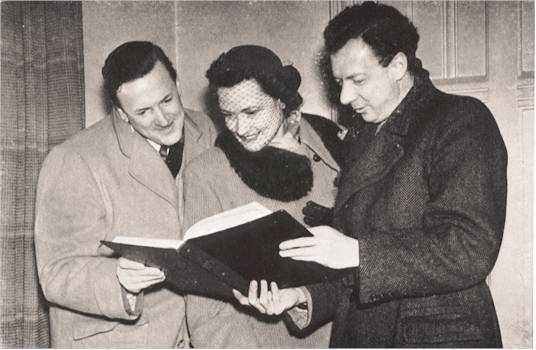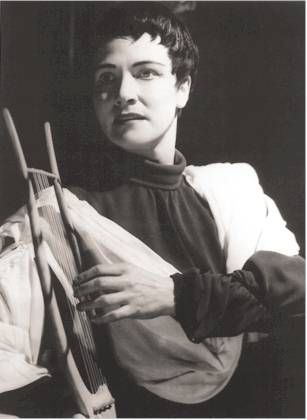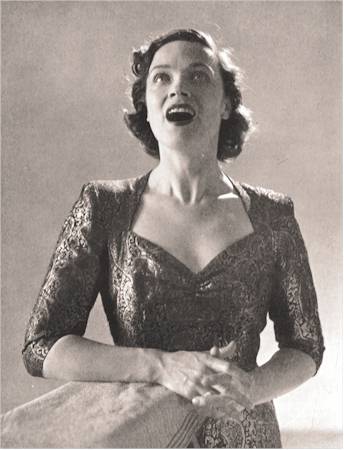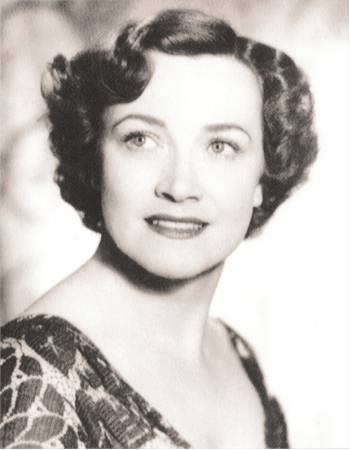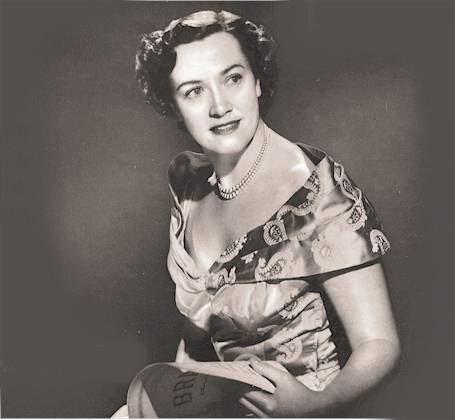English contralto, 1912 - 1953
Biographical notes:
Kathleen Ferrier was born on April 22, 1912, in a Lancashire village in the north of Enland. Despite the limited financial means of the household, her mother insisted that Kathleen should have a proper
education. Very early on, she became fascinated by the piano. Although a very bright student, she seemed to go on to university, but unfortunately, funds were lacking and she had to leave school at
the age of 14 to start work as a telephone operator. As a pianist she participated in the many local festivals and won numerous prizes. Very soon, she accompanied her singing friends. In 1935 Ferrier
married and the couple moved to Carlisle (the marriage turned out to be an unhappy one and was later annulled). It was her husband who challenged her to enter the Carlisle Festival for singing.
After winning both the piano and singing prizes there in 1937, she decided to work as a professional singer, learning by appearing wherever she was asked. She studied with J.E.
Hutchinson, who built her repertoire (songs by Purcell, Bach’s B minor Mass and Passions according to Saint John and Saint Matthew, excerpts from cantatas, Italian arias, oratorios by Handel and
Elgars’ The Dream of Gerontius). She continued her studies with Roy Henderson, a former baritone and dedicated teacher who also introduced her to German songs. Within a short time Kathleen
Ferrier became one of the world’s leading concert artists. She enjoyed tremendous success in Mahler’s orchestral songs, in songs by Brahms, Schubert and Schumann as well as in oratorios. She
worked with all the celebrated conductors of the time like Monteux, Enescu, Karajan, Van Beinum, Erich Kleiber, Busch and Schuricht, to name but a few. The artist also reintroduced many previously
neglected British songs to her audiences. She told in interviews that working with her mentor and fatherly friend Bruno Walter was probably of the greatest importance to her. Glyndebourne
Festival saw her as Lucretia in Britten’s The Rape of Lucretia and Orfeo in Gluck’s Orfeo ed Eudridice (sung in English), her only two operatic roles. In 1951, a first operation interrupted her
touring and, two years later, death of breast cancer put an early end to her too brief career.
“A soul full of joy” (Bruno Walter)
Peter Pears, Kathleen Ferrier and Benjamin Britten - looking at the score of “The Rape of Lucretia” (the “score” was a telephone directory...)
As Orfeo, Covent Garden, 1953
Official portrait, 1951
“A beautiful creature” (Gerald Moore) Comment:
Kathleen Ferrier’s singing was of great dignity and conviction. She managed to bring into the studio the same commitment she showed in live performance. Her voice was a true contralto. The tragedy
of her illness can color our feeling for her records. I think this is not sentimental at all. It is impossible to hear her in Mahler’s Kindertotenlieder and not to be touched by the human situation
(she was already very ill) as well as by her singing. All her Lieder recordings are treasures. She is superb in English songs and gives to this material the
same dignity and honesty she brings to weightier songs. In Brahms’ Vier ernste Gesänge she gives us a deeply felt and entirely moving interpretation.
Kathleen Ferrier was the greatest oratorio singer of the time. If some people find the style too “romantic” by the parameters of what is today considered “correct period style” in oratorio music,
so I think, the worse for that style. Oratorio has to be performed by singers who are able to sing with inner emotion and conviction, qualities I cannot find in most of the singers of today.
Bruno Walter said that Kathleen Ferrier was a woman of good humour and that she should be remembered “in a major key.” The recording presented here is one of her most deeply felt and
incomparable achievements in the field of German song.
My warmest thanks to Anthony Shuttleworth
|
|||||||||||||||||||||||||||||||||||||||||||||||||||||||||||||||||||||||||||||||||
